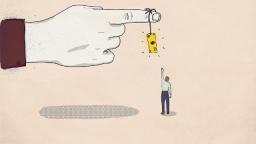It’s somewhat of a given that over the course of your life, you’ll lose your hearing to some degree. But that doesn’t necessarily have to be the case. Your intestine can re-create itself every five days or so, and there’s a science there that can (hopefully) be applied to other parts of the body. Chris Loose is a Hertz Foundation Fellow, working amongst a group of fellows and researchers who are looking at regenerative tissue and making it a reality not just for your hearing but perhaps for other parts of the body as well. We could be in for a regenerative future—and perhaps one where we can live to be well over 100 and still look like we’re 22. The Hertz Foundation mission is to provide unique financial and fellowship support to the nation’s most remarkable PhD students in the hard sciences. Hertz Fellowships are among the most prestigious in the world, and the foundation has invested over $200 million in Hertz Fellows since 1963 (present value) and supported over 1,100 brilliant and creative young scientists, who have gone on to become Nobel laureates, high-ranking military personnel, astronauts, inventors, Silicon Valley leaders, and tenured university professors. For more information, visit hertzfoundation.org.
Chris Loose: Hearing loss is a growing problem with increased prevalence, and the reason for this is because evolutionarily humans are not designed to withstand the assaults of modern society.
Interestingly if you look at places like Easter Island, people maintain normal hearing into old age, but it’s just by living the modern society where we have subways and cars and cities and iPods that we are overburdening our hearing and causing a great deal of hearing loss.
The origin of hearing loss is often the loss of what are called sensory hair cells in the cochlea. And these hair cells move in response to sound and create a signal that gets sent to your brain, and that’s really the origin of hearing.
Now what happens with hearing loss is those delicate hair cells start to die off over time due to external insults from loud noise or certain types of drugs. When that happens they are not naturally regenerated in mammals.
Interestingly, many species like birds and reptiles, if you knock out their hair cells and wait a period of time—a month—their hair cells come back naturally, and they can start hearing again.
So this process is hardwired into nature but mammals just haven’t found a way to turn on the system.
With many technologies designed to address hearing loss, they really just treat symptoms rather than the root cause of the disease, which is the loss of the hair cell.
And the way to think about this is like if you have a TV screen and you start losing the pixels on the TV screen; essentially what these aid devices do is they make the screen brighter, but they don’t fundamentally replace all the pixels that are lost.
So it does help to pick up some degree of signal, but it doesn’t in any way replace that native function of hearing, which is really our goal of re-growing hair cells and putting those pixels back in place and giving you that natural hearing.
At Frequency we’re focused on an entirely new mode of medicine and the objective of this is to make your body’s natural stem or progenitor cells regenerate damaged tissue in place.
And this could really transform medicine across a whole variety of diseases and organs. And where we’ve learned this from is actually looking at the portions of the human body that are very regenerative.
For instance, if you look at the human intestine, it re-creates itself every five days entirely. And that will actually last until you’re well over 100 years old, so your body knows how to re-create certain tissues.
Our objective is to identify what are the local signals that cells get from their niche environment that tells them to start to regrow and start to repair tissue, so we can start turning on the dormant progenitor and stem cells that exist throughout the body.
In order to make good medicines out of that, we focus on applications where those cells can be activated very selectively and very locally for a short period of time. That gives you tremendous benefits in terms of the safety and controllability of reactivating these systems.
And our first application is to do this in hearing loss, where we found that there are dormant progenitors that exist within the cochlea that in some species have the capacity to regenerate, but in mammals are locked in an off position and we are simply finding small molecule drugs, traditional drugs that can go in, turn on those progenitors and re-create hair cells, in this case in the cochlea, to restore the hearing function.
We frequently get asked about the difference between stem cells and progenitor cells, and while there is debate in the field as to how to exactly define them I think what’s very important is to recognize the distinction between your body’s progenitor cells and a pluripotent stem cell. Now a pluripotent stem cell can turn into any cell in your body. It’s really powerful and really flexible.
The advantage of just activating progenitors in your body is they’re generally most of the way differentiated from that pluripotent stem cell that can become anything into the final tissue, so they’re really almost locked into their fate.
So when you activate them they generally only know how to make cells of one or two types, so this gives you a highly controlled system as opposed to if you’re working with a pluripotent system - there’s more concern about creating cell types that you don’t desire in a given application.
Throughout the body progenitor cells are often controlled by their neighboring cells, and what tends to happen is there’s a neighboring cell sitting right next to a progenitor, which is constantly sending signals over to the progenitor.
And this could be saying “continuously divide,” which is commonly going on in the intestine, or in the cochlea it could be giving a signal that is saying “stay asleep.”
Our science is really to understand: what are those signals that are being passed? What specific pathways are being activated by those signals?
And then we say, how can we go in with chemicals, inhibitors or activators to those pathways so we can selectively turn on the signals to drive growth where and when we want it?
We’re very focused on advancing our hearing loss therapy and this is part of a broader platform we think of as “progenitor cell activation,” or PCA.
And with PCA we think this can be applied to many tissues where you can understand what progenitor needs to be activated and define molecules that can activate that progenitor in the right spot.
So you can think of many skin diseases that this could address, everything from wounding to balding to burns, other types of skin pathologies where regeneration is needed.
And by being able to control the growth and differentiation in the intestinal environment also opens up opportunities to address G.I. diseases.
We see opportunities, as with the ear, in the eye, another sensory organ that’s plagued with a number of degenerative diseases where known progenitor cells have been found that could address many of these maladies as well.





